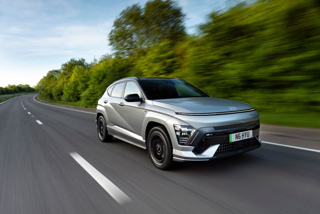Businesses are fundamentally changing the way they fund their vehicles due to the impact of Covid-19 and fleet electrification, says ARI.
The vehicle funding and fleet management provider says that, with employees working from home, meetings held remotely and many operations now running digitally, businesses are questioning their current vehicle provision and established funding contracts, which may not be fit for purpose on the other side of the pandemic.
As a result, ARI says that there has been a marked rise in the number of fleets looking for flexible leasing options as well as offering multibid leasing system for contract hire.
ARI offers finance lease and has seen an 80% rise in enquiries for its FlexLease finance lease product over the past 12 months and has doubled the size of its finance leased fleet in the UK in the past year.
FlexLease has no end-of-contract mileage charges and allows the fleet, not the leasing provider, to determine when they defleet vehicles by combining real time data, online dashboards and finance lease funding.
ARI MD Nick Caller explained that certain fleet vehicles such as delivery or last mile are doing many more miles, while company car mileage in the same business has dropped markedly.
“The result is a widening disparity in the usage profile of a fleet, and one funding method is unlikely to cover all eventualities,” he said.
“Many customers have asked the question what is the next five years going to look like for us? We still need vehicles, but the pandemic has proved there are lots of different ways of doing things that may be more time- and cost-efficient. So why are we paying fixed contract hire rates and maintenance packages for a service we no longer need as much?
“In many closed-end leasing contracts, charges and margins can make up more than 15% of overall cost of ownership.”
Commercial Fleet recently reported how flexibility will be a funding priority for fleets in 2021.
Paul Wright, sales director at commercial vehicle finance provider Asset Alliance Group, says: “We have seen operators continuing to seek stability within their working fleet, fixing costs where they can.
“Although contract hire remains a desirable choice for core fleets, current erratic volume changes mean businesses are also looking towards more flexible means to top-up and support their fleets, especially those working through several Covid-related lockdown restrictions.”
ARI says that its FlexLease product allows companies to improve their cashflow while the assets stay on the balance sheet.
Finance lease as a funding solution is not new, but ARI’s claims that its application of it in FlexLease is, because it uses “highly accurate” reporting technology and marginal gain insights to create bespoke packages for every customer.
“Contract hire undoubtedly served a purpose historically,” continued Caller. “But with legislation changes and the advent of electrification, all bets are off and companies will be spending the next few years learning again how they will use their fleets.
“They need more agile leasing products that can adapt to changing circumstances and suit how they use their vehicles – not how it suits their leasing provider.”
With FlexLease, resale value, the asset and associated debt are shown on the fleet’s balance sheet, and the vast majority of the agreed value of the vehicle is paid over the rental term.
Once paid, fleets can opt to carry on leasing the vehicle on a lower rental. Alternatively, the vehicle can be sold, in which case 100% of the sale's net profit is returned to the customer.
Owned by the New Jersey-based Holman Group, in the USA, ARI funds more than 250,000 vehicles through finance lease.
Read more about how ARI is challenging the ‘status quo’ following a business review.




















Login to comment
Comments
No comments have been made yet.